Discover the essential guide to Warrior Cat herbs‚ detailing natural remedies and healing practices used by Medicine Cats to protect and care for their Clanmates. This comprehensive resource covers everything from gathering to application‚ ensuring every cat can benefit.
Overview of the Importance of Herbs in the Warrior Cats Universe
Herbs play a vital role in the Warrior Cats universe‚ serving as the cornerstone of Medicine Cats’ healing practices. These natural remedies are used to treat wounds‚ cure illnesses‚ and enhance overall health‚ ensuring Clanmates thrive. From marigold for infections to daisy leaves for internal injuries‚ herbs are indispensable. Medicine Cats meticulously gather‚ store‚ and apply these plants‚ relying on ancient knowledge passed down through generations. This tradition underscores the deep connection between the Clans and nature‚ highlighting herbs as a lifeline for survival and a testament to their resilience and harmony with the wild. Herbs are not just remedies—they are a way of life.
Medicine Cats are the guardians of herbal wisdom in the Warrior Cats world‚ dedicating their lives to healing and protecting their Clanmates. They expertly use herbs like juniper berries for bellyaches and lavender to cure fever‚ ensuring the Clan’s well-being. Their role involves gathering‚ storing‚ and preparing remedies‚ often passing down knowledge through generations. Medicine Cats are not only healers but also spiritual guides‚ using herbs to address emotional and physical needs. Their deep understanding of nature and commitment to their duty make them indispensable‚ ensuring the Clan’s survival and prosperity through their selfless care and expertise in herbal medicine. Their work is vital to the Clan’s harmony and strength. Herbal medicine in the Warrior Cats universe relies on natural remedies‚ with Medicine Cats using plants like juniper berries and lavender to treat ailments and promote healing. Medicine Cats learn herbal healing through apprenticeship and mentorship‚ passed down by experienced elders. They identify and harvest plants like juniper berries and lavender‚ using them to treat ailments such as bellyaches and fevers. Herbs are prepared as infusions‚ poultices‚ or eaten raw‚ depending on the condition. Medicine Cats organize their stores meticulously‚ ensuring easy access for emergencies. This ancient knowledge‚ rooted in observation and trial‚ allows them to heal wounds‚ soothe sicknesses‚ and strengthen their Clanmates‚ demonstrating their vital role in maintaining the Clan’s health and resilience. The Clans’ herbal knowledge traces back to ancient times‚ originating from Cloud Spots and Dappled Pelt‚ who introduced mountain remedies. The Tribe of Rushing Water also contributed by sharing valley herbs. Over generations‚ Medicine Cats refined these practices‚ adapting to their environments. This wisdom has been preserved through oral traditions and hands-on training‚ ensuring that each Clan’s Medicine Cat carries forward the legacy. The history reflects a deep connection with nature and a commitment to healing‚ forming the cornerstone of Clan medicine. Herbal healing in the Warrior Cats universe revolves around natural remedies and the Medicine Cats’ deep understanding of plant properties. Key principles include using only freshly gathered‚ correctly identified herbs to ensure safety and efficacy. Proper harvesting techniques‚ such as avoiding contaminated or wilted plants‚ are crucial. Dosage control is vital‚ as overuse can harm. Storage methods‚ like drying or keeping herbs in cool‚ dry places‚ preserve potency. Medicine Cats also emphasize avoiding poisonous plants‚ such as deathberries‚ and understanding when herbal remedies are not sufficient. This approach ensures that herbal healing remains a cornerstone of Clan medicine‚ balancing safety‚ effectiveness‚ and respect for nature. Medicine Cats gather herbs fresh from nature‚ ensuring proper identification and avoiding contamination. Herbs are stored in dry‚ shaded areas to maintain potency for healing purposes. Medicine Cats carefully identify herbs‚ ensuring they are free from contamination. Harvesting is done with claws‚ avoiding roots unless necessary. Alder bark is stripped in thin layers‚ while juniper berries are plucked ripe. Daisy leaves and mallow are picked fresh‚ but stored dry. Seasonal awareness is key; alder thrives near water‚ juniper in open areas. Herbs like catmint are gathered in bloom‚ while marigold is taken when bright. Sustainability is vital—never over-harvest to protect future growth. Avoid poisonous lookalikes‚ like yew or hemlock. Proper storage in shaded‚ dry spots preserves potency‚ ensuring herbs remain effective for healing. Proper storage ensures herbs remain potent and usable. Dry herbs thoroughly before storing in shaded‚ moisture-free areas. Use large leaves‚ moss‚ or clean animal stomachs as natural wrappers. Avoid damp environments to prevent mold. Store in small‚ airtight pouches or hidden caches within the den. Drying herbs like daisy leaves and mallow extends shelf life. Fresh herbs such as juniper berries can be stored in cool‚ dry spots. Regularly inspect stored herbs for spoilage. Proper storage maintains healing properties‚ ensuring Medicine Cats can rely on them for their Clan’s health. This method preserves effectiveness and availability year-round. Medicine Cats use simple yet effective tools to prepare herbs for healing. Claws are used to shred or crush leaves‚ while stones help grind tougher materials like roots or bark. Fresh herbs are often chewed and mixed with saliva to create a paste‚ which is applied directly to wounds. For infusions‚ herbs are steeped in water‚ allowing their properties to dissolve. Dried herbs can be pulverized and mixed with water or animal fat to form ointments. These methods ensure the full potential of each herb is utilized‚ making them effective for various treatments. Proper preparation is key to a Medicine Cat’s success in healing their Clanmates. Explore the essential herbs Medicine Cats rely on‚ including Alder Bark‚ Juniper Berries‚ and Marigold‚ each offering unique healing properties to treat wounds‚ infections‚ and ailments effectively. Alder Bark‚ sourced from alder trees‚ is a versatile herb used by Medicine Cats to treat toothaches and gum issues. It is typically harvested by slicing the bark with claws. The bark’s properties help reduce pain and inflammation‚ making it ideal for dental care. Medicine Cats often store it in dry‚ shaded areas to preserve its effectiveness. Alder Bark is also known to promote healing in wounds when applied as a poultice. Its ability to alleviate discomfort makes it a crucial remedy in a Clan’s herbal arsenal‚ ensuring the well-being of all members. Juniper Berries are small‚ blue-gray fruits with a distinctive aroma‚ offering numerous health benefits for cats. They are primarily used to treat bellyaches‚ calm anxious or restless cats‚ and aid in troubled breathing. Juniper Berries also provide strength and vitality. Medicine Cats often chew and swallow the berries or mix them into herbal remedies. Their versatile properties make them a valuable resource for addressing various ailments‚ from digestive issues to respiratory discomfort. Juniper Berries are a staple in a Medicine Cat’s herb collection‚ ensuring the well-being of their Clanmates through natural and effective healing methods. Lambs Ear is a soft‚ velvety herb that plays a crucial role in strengthening cats. Known for its gentle texture‚ it is often used by Medicine Cats to boost a cat’s overall vitality. The herb is particularly effective in helping cats recover from illness or injury‚ providing a natural source of energy. Lambs Ear is also used to comfort cats during times of stress or weakness. Its mild properties make it suitable for cats of all ages‚ ensuring they remain strong and resilient. This herb is a trusted remedy in the Warrior Cats world‚ promoting health and vigor among Clanmates. Lavender is a versatile herb renowned for its effectiveness in treating fever and chills among cats. Its calming properties help reduce body temperature and alleviate discomfort‚ making it a go-to remedy for Medicine Cats. Lavender is also used to smother unpleasant scents‚ such as the smell of death‚ which can distress Clanmates. This herb is typically administered by chewing and swallowing‚ allowing its healing properties to take effect quickly. Lavender’s soothing nature ensures cats recover smoothly from feverish conditions‚ restoring their energy and health. It is a trusted and natural solution in the Warrior Cats world for combating chills and fever symptoms effectively. Mallow leaves are a natural remedy for soothing bellyaches and digestive discomfort in cats. Their mild‚ non-irritating properties make them ideal for calming upset stomachs. Medicine Cats often use mallow leaves to treat nausea and diarrhea‚ ensuring quick relief for their Clanmates. The leaves are typically chewed and swallowed‚ allowing their soothing effects to take effect rapidly. Mallow leaves are also known for their gentle action‚ making them suitable for cats of all ages‚ including kits and elderly cats. This herb is a cornerstone in the Warrior Cats’ herbal medicine‚ providing effective and gentle care for gastrointestinal issues. Marigold is a versatile herb used by Medicine Cats to treat infections and inflammation. Its bright orange or yellow flowers are rich in anti-inflammatory and antiseptic properties‚ making it effective in preventing the spread of infection and reducing swelling. Medicine Cats often apply marigold as a poultice to wounds or chew the petals for internal issues. It’s particularly useful for treating injuries‚ skin infections‚ and digestive inflammation. Marigold’s ability to stop bleeding and promote healing makes it a vital herb in every Clan’s medicine stash‚ ensuring the well-being of their warriors and kits alike. Medicine Cats use herbs to address various health issues‚ from wounds and infections to pain and digestive problems‚ ensuring effective treatment tailored to each ailment. Herbs play a vital role in treating wounds and injuries in the Warrior Cats universe. Marigold is highly effective for stopping infection and reducing inflammation‚ while also preventing bleeding. Alder bark‚ known for its healing properties‚ is used to treat minor injuries and promote recovery. Plantain leaves are applied to cuts and scrapes to soothe irritation and accelerate healing. Horsetail‚ with its antiseptic qualities‚ is ideal for deep wounds‚ aiding in the prevention of infection. These natural remedies are essential tools for Medicine Cats‚ ensuring their Clanmates recover swiftly and effectively from various injuries. Herbs are crucial in treating infections and inflammation among Warrior Cats. Marigold is a standout remedy‚ known to stop infection and reduce inflammation effectively. Dock leaves are commonly used to treat burns and minor wounds‚ while juniper berries help calm troubled breathing and provide strength. Plantain leaves are applied to cuts and scrapes to soothe irritation and promote healing. Horsetail‚ with its antiseptic properties‚ is ideal for deep wounds to prevent infection. These natural remedies are essential for Medicine Cats‚ ensuring their Clanmates recover swiftly and effectively from various infections and inflammatory conditions. Herbs play a vital role in providing pain relief and comfort to injured or ailing cats. Poppy seeds are widely used to ease pain and help cats sleep peacefully. Willow bark is another effective herb for general pain relief‚ offering soothing comfort. Daisy leaves and chamomile are known for their calming properties‚ reducing muscle tension and anxiety. Coltsfoot is often used to alleviate internal discomfort and coughs‚ while borage leaves help lower fevers and provide strength. These natural remedies are essential tools for Medicine Cats‚ ensuring their Clanmates find relief and comfort during recovery from injuries or illnesses. Certain herbs are specifically used to address digestive problems in cats. Mallow leaves are renowned for soothing bellyaches and calming upset stomachs. Juniper berries are effective in treating digestive discomfort‚ helping to ease nausea and indigestion. Burnet root is another valuable herb‚ known to alleviate stomach pain and cramps. Watercress is often used to cleanse the digestive system and prevent infections. Chamomile can also be employed to calm the digestive tract‚ reducing inflammation and discomfort. These natural remedies are crucial for maintaining gut health and ensuring cats recover quickly from digestive ailments. Respiratory issues can be effectively treated with specific herbs. Juniper berries are known to ease troubled breathing and reduce congestion. Catmint is another valuable herb‚ aiding in clearing airways and improving breathing. Coltsfoot is often used to treat coughs and lung infections‚ while thyme helps alleviate respiratory inflammation. These herbs are crucial for cats suffering from breathing difficulties‚ ensuring they can recover and maintain healthy lungs. Medicine Cats rely on these natural remedies to address a range of respiratory ailments‚ from mild colds to more severe infections‚ providing effective and immediate relief. Lavender is a key herb for treating fever and chills‚ helping to reduce body temperature and soothe discomfort. Borage leaves are also effective‚ as they can lower fevers and provide relief from chills. Willow bark‚ known for its cooling properties‚ is often used to combat high temperatures and associated discomfort. These herbs are typically administered by chewing or mixing into water‚ making them easily accessible for Medicine Cats. Their natural properties ensure quick and effective relief‚ helping cats recover from feverish conditions and regain their strength. These remedies are essential for maintaining the health and well-being of Clan members during illness. Advanced remedies involve combining herbs for enhanced effects‚ creating poultices‚ and using plants for spiritual healing. These methods treat severe ailments and promote emotional well-being in cats. Combining herbs allows Medicine Cats to create powerful remedies tailored to specific ailments. For example‚ pairing marigold with chamomile enhances infection treatment while calming the patient. This practice‚ passed down through generations‚ enables Medicine Cats to address complex conditions effectively. By mixing herbs like daisy leaves and sorrel‚ they can suppress hunger and boost strength during journeys. The key is to balance potency and ensure compatibility‚ as certain combinations may worsen symptoms. This advanced technique requires deep knowledge of herbal properties‚ making Medicine Cats invaluable to their Clan. Properly combined‚ herbs can treat wounds‚ reduce fever‚ and even aid in spiritual healing‚ showcasing the sophistication of feline herbal medicine. Poultices and pastes are essential tools for Medicine Cats‚ allowing them to apply herbs directly to wounds or affected areas. To create a poultice‚ fresh or dried herbs are crushed and mixed with a small amount of water or berry juice to form a paste. This mixture is then applied to the injury or illness site‚ often secured with a large leaf. For example‚ marigold paste is used to treat infections‚ while plantain poultices reduce swelling. These remedies are simple yet effective‚ requiring minimal tools—such as rocks or paws—to prepare. Properly applied‚ they promote healing and comfort‚ showcasing the ingenuity of feline herbal medicine. In the Warrior Cats universe‚ herbs are not only used for physical ailments but also for spiritual and emotional well-being. Medicine Cats often use calming herbs like chamomile to soothe anxious minds or daisy leaves to promote clarity and focus. These remedies help cats cope with stress‚ grief‚ or emotional turmoil. Additionally‚ herbs like sorrel and burnet are known to uplift spirits and provide mental strength‚ especially during challenging times. This holistic approach ensures that a cat’s emotional and spiritual health is as valued as their physical well-being‚ fostering harmony within the Clan and reinforcing the bond between Medicine Cats and their kin. Deathberries are the most dangerous‚ causing fatal illness. Other poisonous plants‚ like yew and hemlock‚ are deadly to cats. Medicine Cats must identify these to protect Clanmates. Identifying and avoiding deadly plants is crucial for Medicine Cats to ensure Clan safety. Deathberries‚ small and round with a shiny appearance‚ are highly toxic and fatal if ingested. Yew berries‚ though tempting‚ contain seeds that are poisonous to cats. Hemlock‚ with its fern-like leaves and purple spots‚ is another dangerous plant that can cause severe illness or death. Medicine Cats must learn to distinguish these harmful plants from safe herbs through careful observation and training. Recognizing their distinctive features and growing habits helps prevent accidental ingestion. This knowledge is passed down through generations‚ ensuring the Clan’s well-being and survival. Vigilance is key to protecting cats from these threats. Deathberries are the most lethal plant in the Warrior Cats universe‚ known for their round‚ shiny appearance and enticing appeal. They are highly toxic‚ causing immediate illness and certain death if ingested. Even a small amount can be fatal‚ making them a critical threat to Clan members. Medicine Cats strictly warn their kin to avoid Deathberries‚ emphasizing their deadly nature. These berries grow in various environments‚ often near streams or in shaded areas‚ making them a constant danger. Their allure to curious cats‚ especially kits‚ necessitates constant vigilance. Deathberries have no medicinal use and are solely a hazard‚ underscoring the importance of Medicine Cats’ expertise in identifying them. Beyond Deathberries‚ several other plants pose significant threats to Clan cats. Yew berries‚ while tempting‚ are highly toxic and can cause severe illness or death. Hemlock‚ with its delicate white flowers‚ is another deadly plant that affects the nervous system. Nightshade‚ known for its shiny black berries‚ is equally dangerous and can lead to paralysis or death. These plants often grow in shaded‚ damp areas‚ making them difficult to spot. Medicine Cats emphasize the importance of avoiding these plants entirely‚ as they have no medicinal value and are purely hazardous. Recognizing these dangers is crucial for all Clan members to ensure their safety and survival in the wild. Medicine Cats tailor herbal remedies for queens‚ kits‚ elders‚ and hunters‚ ensuring each group receives targeted care for their unique needs‚ from strength to digestion and healing. Medicine Cats use specific herbs to support queens during pregnancy and nursing‚ as well as kits for healthy growth. Borage Leaves are chewed to increase milk production in queens‚ while Beech Leaves aid in strengthening kits. Daisy Leaves help soothe digestive issues in young cats. For feverish kits‚ Feverfew is a gentle remedy. These herbs ensure the well-being of vulnerable Clan members‚ promoting vitality and resilience in the next generation of warriors. Safety and effectiveness are prioritized‚ with remedies tailored to their unique needs. Elderly cats benefit from specific herbs to ease age-related ailments. Alder Bark is used to soothe toothaches‚ while Juniper Berries calm troubled breathing and provide strength. Poppy Seeds ease pain and aid sleep‚ offering comfort for arthritic or frail cats. These remedies help maintain the quality of life for elders‚ ensuring they remain comfortable and content. Medicine Cats carefully administer these herbs‚ considering the cat’s overall health and sensitivity. Such care reflects the deep respect and care Clans show for their elderly members‚ honoring their wisdom and contributions. These natural remedies are vital in supporting aging cats gracefully. Certain herbs are valued for enhancing strength and endurance‚ crucial for hunting and battle. Juniper Berries are often used to boost energy and calm breathing‚ aiding cats during long hunts. Lambs Ear is known to grant strength‚ making it a favorite for warriors. Marigold helps prevent inflammation after injuries‚ ensuring cats remain active. Medicine Cats also use Dandelion to support stamina and Nettle for muscle health. These herbs are typically administered before hunts or battles‚ often chewed or mixed into pulp for easy consumption. They play a vital role in maintaining the physical prowess of Clan members‚ ensuring their effectiveness in both hunting and protecting their territory. Mastering herbal medicine is vital for Clan survival. Always store herbs properly‚ use correct dosages‚ and learn from experience. Continuous adaptation ensures effective healing and strength for all cats. Medicine Cats must prioritize proper herb harvesting‚ ensuring sustainability and potency. Store herbs in dry‚ cool places to maintain effectiveness. Always use correct dosages to avoid harm. Never use poisonous plants like Deathberries. Keep the herb store organized for quick access during emergencies. Continuously learn about new herbs and ailments to adapt treatments. Share knowledge with apprentices to preserve Clan traditions. Trust instincts and experience when diagnosing and treating. Collaboration with other Medicine Cats enhances understanding and improves care. Remember‚ a Medicine Cat’s role is vital‚ requiring dedication‚ wisdom‚ and compassion to protect and heal their Clanmates effectively. Medicine Cats must embrace lifelong learning to master herbal healing. Stay updated on new discoveries and seasonal herb availability. Adapt treatments to suit individual needs‚ ensuring effectiveness. Share insights with Clanmates to enhance collective knowledge. Regularly review and refine herbal remedies based on experience. Collaborate with other Medicine Cats to exchange wisdom and strategies. Remain open to new ideas while respecting ancient traditions. Continuous learning ensures the Clan’s health and resilience‚ fostering trust and reliance on Medicine Cats. By evolving with the times‚ Medicine Cats uphold their crucial role in preserving Clan well-being and heritage. The future of herbal medicine in the Clans lies in preserving tradition while embracing innovation. As Medicine Cats pass their knowledge to apprentices‚ new discoveries and evolving challenges will shape their practices. The Clans must remain vigilant in identifying new herbs and understanding their properties. Collaboration between Medicine Cats across Clans can foster a richer understanding of herbal remedies. By honoring the past while adapting to the present‚ herbal medicine will continue to thrive‚ ensuring the health and resilience of future generations. This balance of tradition and progress will safeguard the Clans’ well-being for moons to come.The Role of Medicine Cats in Herbal Healing
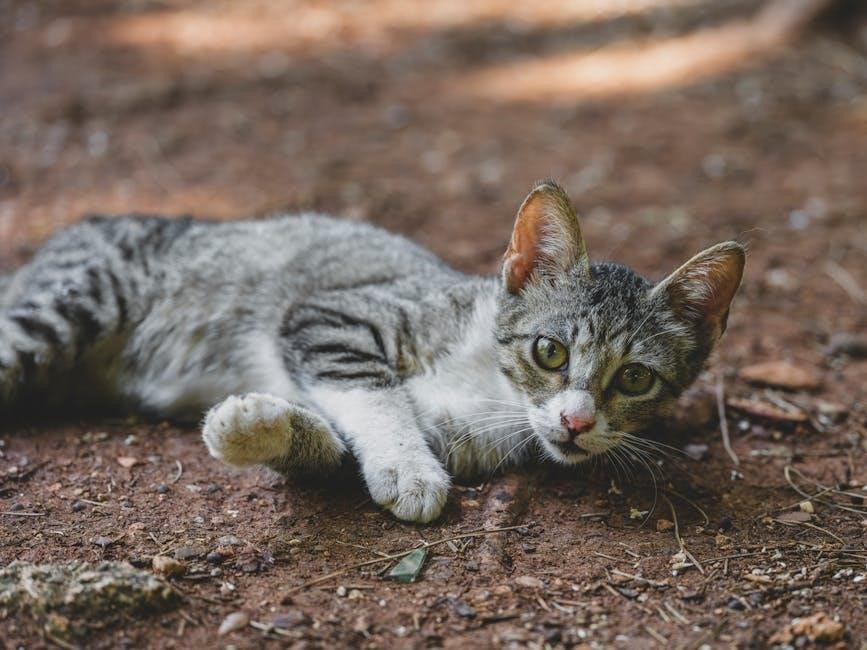
Understanding the Basics of Herbal Medicine in Warrior Cats
How Medicine Cats Learn and Use Herbs
The History of Herbal Knowledge in the Clans
Key Principles of Herbal Healing
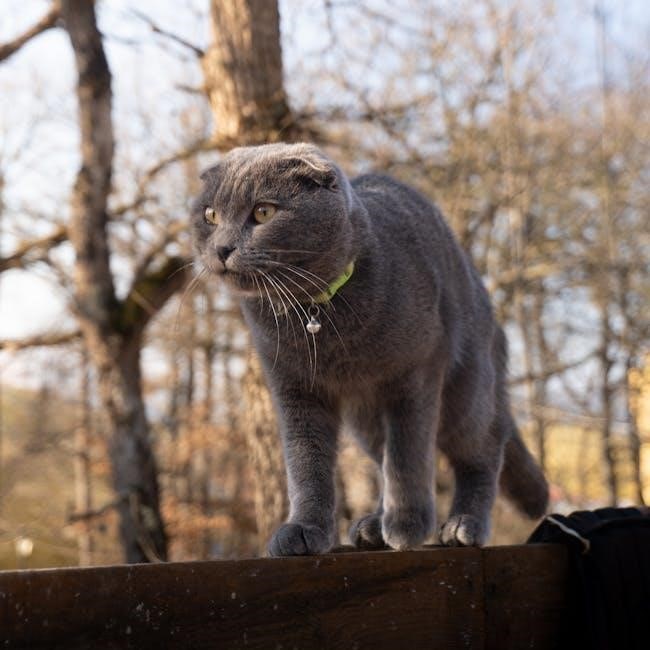
Gathering and Storing Herbs
Best Practices for Harvesting Herbs
How to Store Herbs for Long-Term Use
Tools and Methods for Preparing Herbs
Common Herbs Used by Medicine Cats
Alder Bark: Uses and Benefits
Juniper Berries: Properties and Applications
Lambs Ear: How It Strengthens Cats
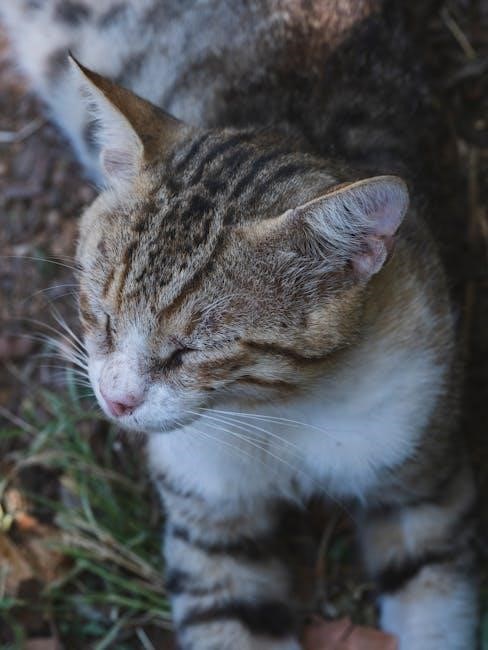
Lavender: Fever and Chills Treatment
Mallow Leaves: Soothing Bellyaches
Marigold: Infection and Inflammation Treatment
Herbs for Specific Ailments
Herbs for Wounds and Injuries
Herbs for Infections and Inflammation
Herbs for Pain Relief and Comfort
Herbs for Digestive Issues
Herbs for Respiratory Problems
Herbs for Fever and Chills

Advanced Herbal Remedies
Combining Herbs for Enhanced Effects
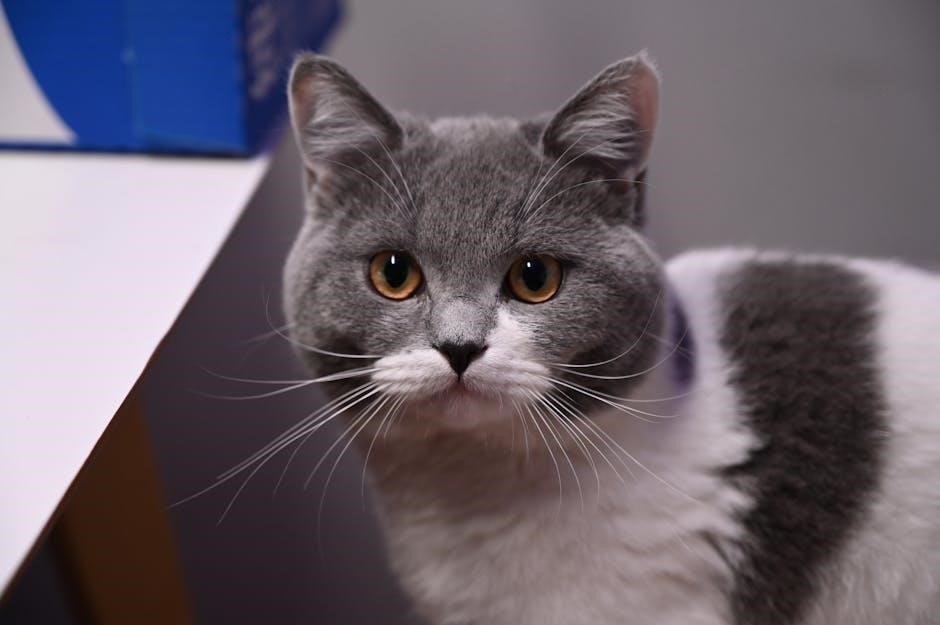
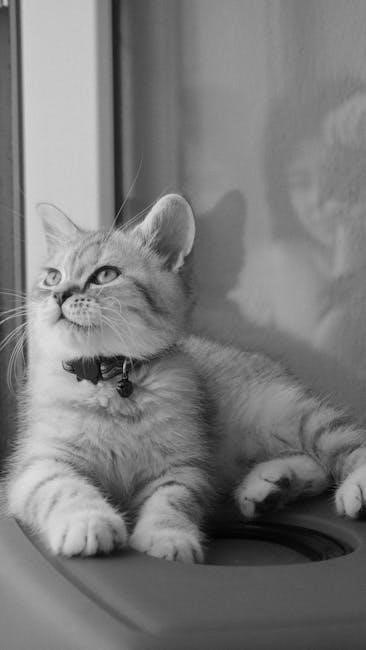
Creating Poultices and Pastes
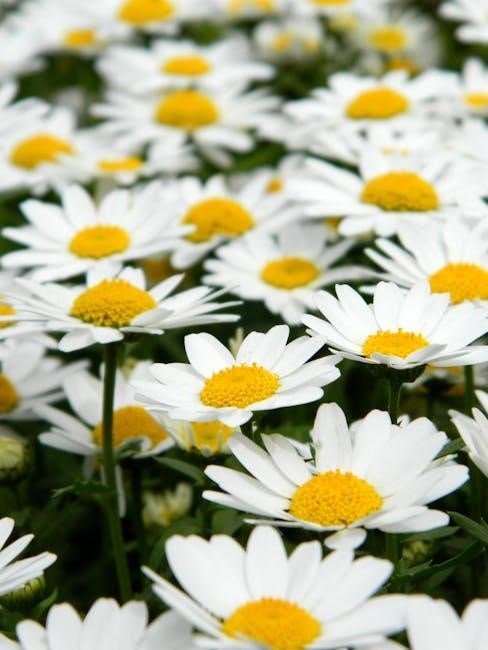
Using Herbs for Spiritual and Emotional Healing
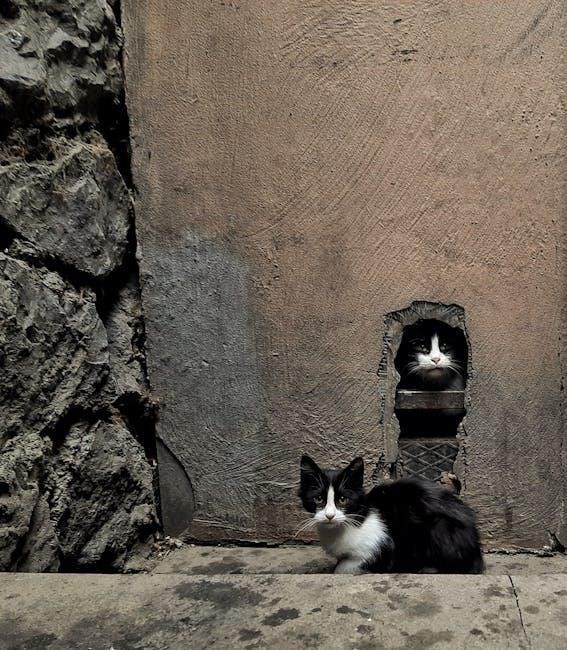
Poisonous Plants to Avoid
Identifying and Avoiding Deadly Plants
Deathberries: The Most Dangerous Plant
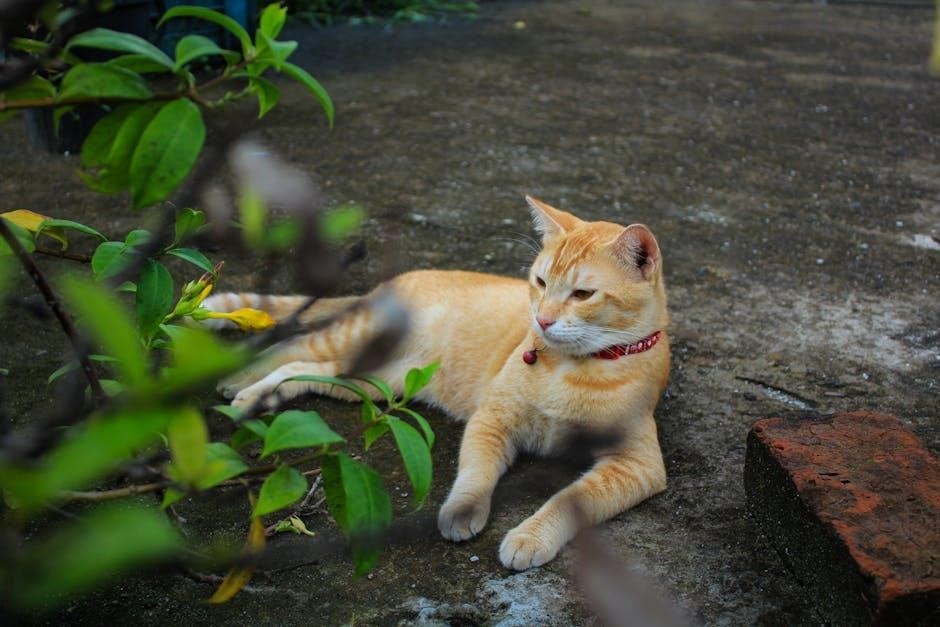
Other Poisonous Plants in the Forest
Herbal Care for Specific Groups
Herbs for Queens and Kits
Herbs for Elderly Cats
Herbs for Hunting and Strength
Best Practices for Medicine Cats
Continuous Learning and Adaptation
The Future of Herbal Medicine in the Clans
